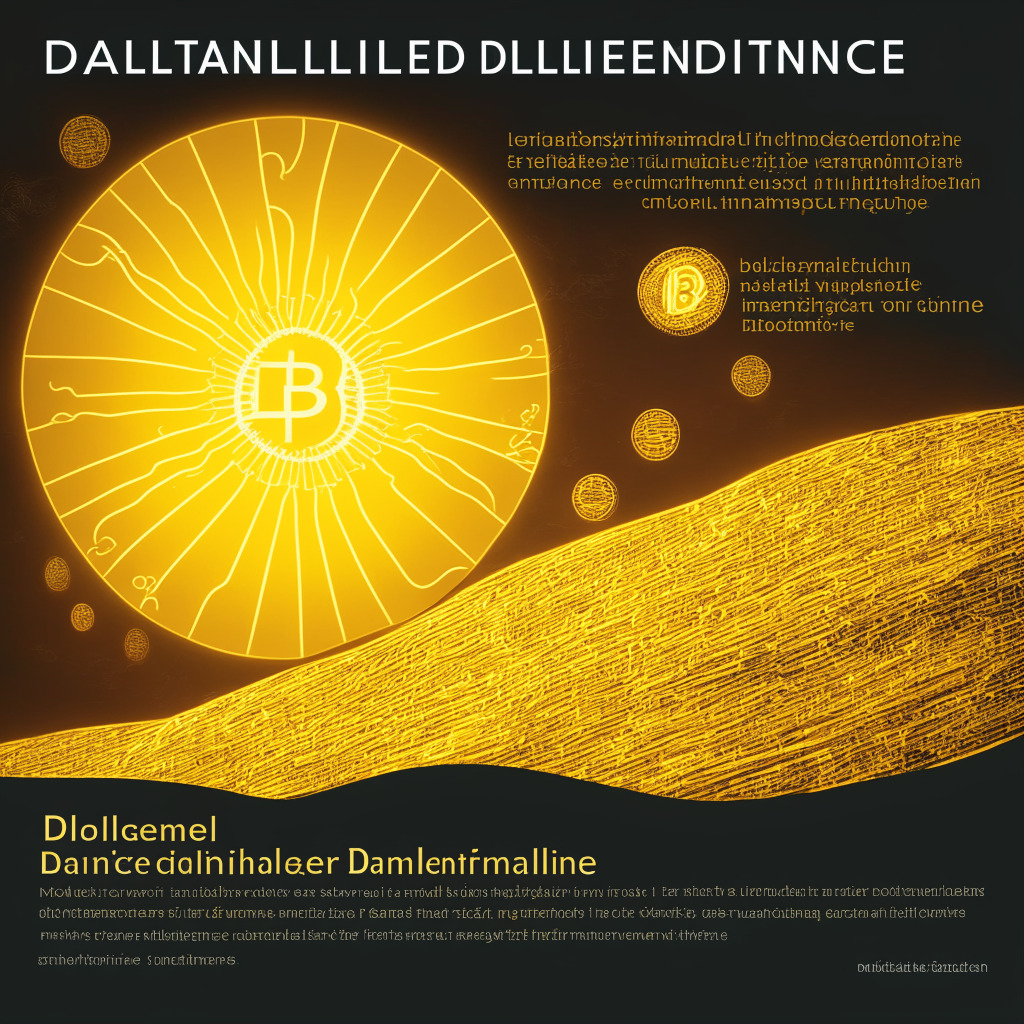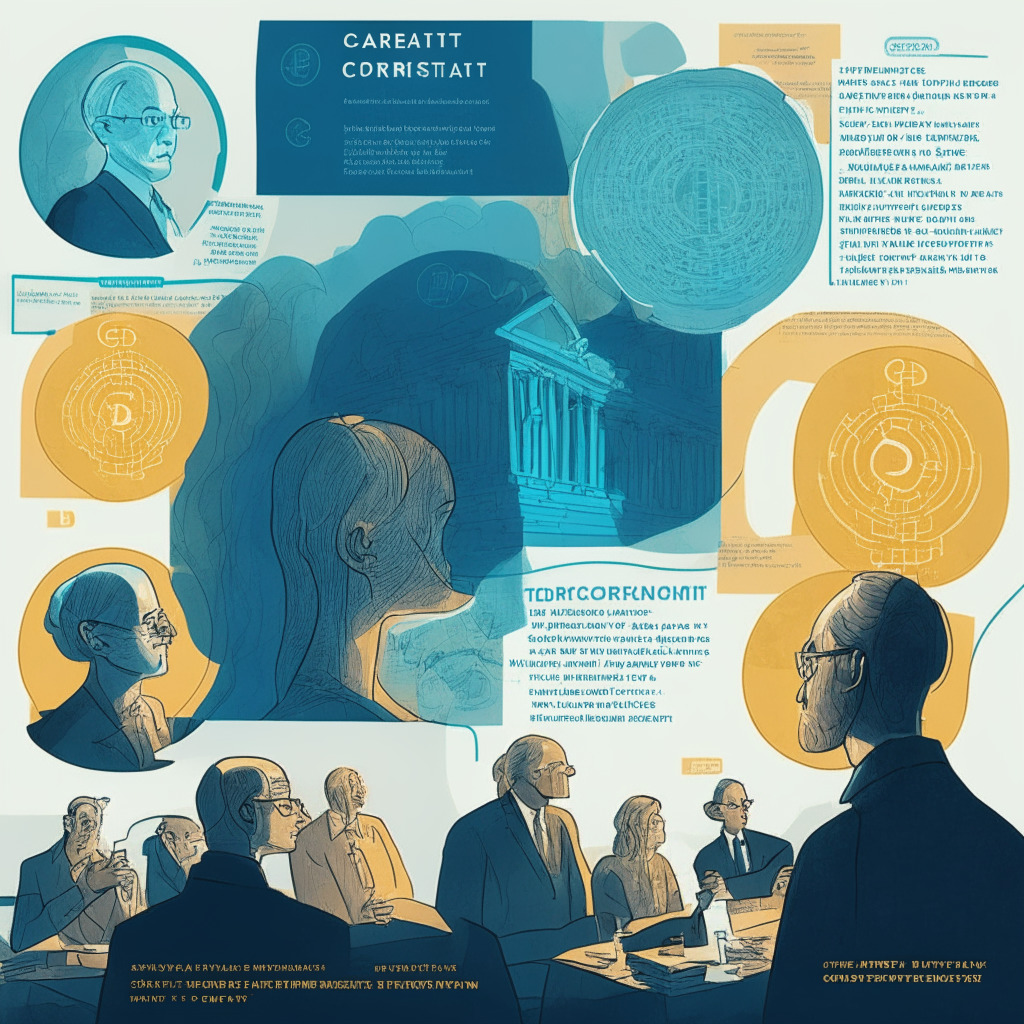Venmo, a comprehensive financial service, is allowing users to navigate the complexities of cryptocurrencies, even including assets like Bitcoin to its money transfer system. However, while users can purchase Bitcoin through various funding options, potential pitfalls such as scams, irreversible transactions, and the lack of protection from FDIC raise a need for careful consideration before diving into cryptocurrency purchasing.
Search Results for: Venmo
PayPal’s Venmo and the Stalled Adoption of PYUSD Stablecoin: Analysis and Future Implications
“PayPal’s mobile payment platform, Venmo, has begun offering its Ethereum-based stablecoin, PYUSD, marking a significant step toward integrating cryptocurrency with mainstream finance. Despite its robust structure and support, PYUSD’s adoption has been slow, likely due to competition and regulatory contradictions.”
Unraveling PayPal’s Plan: Crypto.com, Stablecoin and the Future of Cryptocurrency Markets
“PayPal has plans to make Crypto.com the preferred platform for their USD-backed stablecoin, PYUSD. Despite skepticism around adoption and seamless trade, this move could mark a significant stride towards widespread crypto adoption in traditional finance.”
Court Ruling Throws Crypto Sphere into Disarray: ETH and BTC as Commodity vs Security
A New York district court dismissed a lawsuit against Uniswap, ruling that BTC and ETH are commodities, not securities. The court defended the decentralized nature of Uniswap, stating the investors’ claims would be better addressed to Congress, not the court. This ruling may influence future lawsuits against decentralized protocols.
Elon Musk’s Social Media Platform X Recognized as Currency Transmitter: The Pros and Cons
“Elon Musk’s social media platform, X, has been recognized as a money transmitter in seven U.S. states, with the latest license from Rhode Island. These licenses signal Musk’s ambitions to rival existing payment systems like PayPal, and possibly transform into an ‘everything app’, providing nationwide payment processing and crypto services.”
PayPal Enters Stablecoin Market: Catalyst for Regulatory Clarity or a Step Away from Decentralization?
“PayPal’s stablecoin, PYUSD, built on the Ethereum network, signals a major step towards crypto adoption in traditional finance. Despite concerns about its centralized structure, PYUSD could clarify crypto regulations, accelerate token usage, consolidate crypto payment with traditional finance, and encourage wider adoption of blockchain technology.”
PayPal’s PYUSD vs Major Stablecoins: A Battle for Market Share or a Losing Game?
“Bank of America suggests PayPal’s stablecoin, PYUSD, may struggle in the face of established competitors like USD Tether (USDT) and USD Coin (USDC). Factors such as lack of fresh functionality and wallet compatibility issues could impede its progress. However, PYUSD has potential to enhance customer experience within the PayPal ecosystem and capitalize on blockchain-enabled asset transfers, payments, and remittance services.”
PayPal’s New Stablecoin PYUSD: Exploring its Potential and Uncertainties
“PayPal’s recently unveiled stablecoin, PYUSD, is predicted to enhance payment efficiency. Despite optimism, reception may vary due to competition from central bank digital currencies and yield-bearing stablecoins. Current investors appear unbothered by the lack of yield and focus on safety and availability.”
Massive Stablecoin Growth Predicted: 2140% Rise Expected but Regulatory Challenges Loom
An astronomical surge in the stablecoin market is projected, with a 2140% increase from $125 billion to $2.8 trillion, driven by greater integration with consumer platforms. Increased collaborations between global financial and consumer platforms to release their co-branded stablecoins are anticipated. However, the challenge of stablecoin regulation persists.
Bitcoin’s Potential Surge on Spot ETF Approvals and PayPal’s Stablecoin Impact
The market anticipates a Bitcoin retest at the $30,000 threshold due to the projected approvals for Bitcoin ETF applications and growing crypto acceptance. Influential figures predict ETF sanctioning in 4-6 months, potentially accelerating Bitcoin’s value. Concurrently, PayPal plans to launch an Ethereum-based stablecoin, enhancing crypto adoption. Bitcoin’s rally could continue if it surpasses the 50-Day Moving Average. However, factors like inflation data can impact sentiment.
PayPal’s Entry Into Crypto: A Boon to the Industry or Threat to Web3’s Future?
“PayPal’s announcement of a stablecoin on Ethereum, followed by imposter tokens looking to cash in on its success, indicates possible future rug pulls. PayPal’s decision to operate within the established financial system counters crypto’s aim to break from traditional financial structures. It boosts crypto’s credibility, yet risks changing Web3’s face.”
Exploring the Impacts of PayPal’s Stablecoin PYUSD: Vehicle for Financial Inclusion or Corporate Gain?
“PayPal’s U.S. stablecoin, PYUSD, has sparked interest in the crypto world. Unlike smaller cryptofirms, traditional giants like PayPal can influence regulators to accommodate their aspirations. However, whether PYUSD will democratize access or predominantly serve business interests remains uncertain.”
PayPal’s Venture into Stablecoin: A Game-Changer or Just Another player?
PayPal Holdings Inc. plans to launch an exclusive US dollar-backed stablecoin, PayPal USD (PYUSD), intending to change the way stablecoins are used in daily transactions. Amid uncertainty over stablecoin regulations, many hope that PayPal’s entry could be a game-changer for the sector’s growth and investor confidence.
Cryptocurrency Challenges Parallel Early Auto Industry: A Historical Paradox Unveiled
This article draws parallels between the challenges faced by pioneers of the automobile industry in the 1890s and current crypto developers. From recognition and distancing from scams, to impractical ideas and fraudulent operators, the hurdles are notably similar. However, a spirit of cooperative innovation also links these two technological transformations.
AI Vs. Crypto Jobs: Riding the Waves of Technology Trends and Market Sentiments
“A recent study shows ‘AI jobs’ dominating ‘crypto jobs’ in online searches, with AI’s popularity as an employment sector historically surpassing crypto. Interest in ‘crypto jobs’ spiked with the 2021 cryptocurrency burst but dropped due to various factors including a bearish downturn and regulatory scrutiny.”
The Apple App Store vs Damus: Bitcoin Tipping Clash Affects Decentralized Social Media Future
Apple warns decentralized social media app, Damus, for violating its policy by enabling Bitcoin tipping via “Zaps” feature. The Damus team questions this stance, asking for clarification on whether they’re in true violation, while also pointing out potential inconsistencies in Apple’s approach.
Risky Payment Apps vs Secure Bitcoin: Navigating FDIC Protection & Financial Security
The Consumer Financial Protection Bureau (CFPB) warns that funds stored in popular payment apps may not be insured, highlighting possible financial uncertainties. Bitcoin, with its decentralized nature and self-sovereignty, gains attention as a secure alternative providing users sole ownership and control over their funds, unlike payment apps.
Uninsured Dangers: Digital Payment Apps, Crypto Exchanges, and the FDIC’s Role in Protecting Funds
The Consumer Financial Protection Bureau (CFPB) recently warned that digital payment apps like PayPal and Venmo, as well as crypto exchanges, lack FDIC insurance, posing risks to users’ funds. The FDIC has been targeting crypto companies making misleading claims about their insured status, emphasizing that no crypto exchanges are insured by the FDIC. Users must be cautious of potential risks associated with these platforms.
P2P Payment Apps: Uncovering Hidden Risks and the Importance of FDIC Coverage
The US Consumer Financial Protection Bureau warns that funds stored in nonbank payment platforms, including those offering crypto services, may not be protected by federal deposit insurance coverage. With recent collapses involving major banks, consumers must exercise caution and understand potential risks when managing assets through online payment services.
India’s e-Rupee Advancements: Boon or Bane for the Nation’s Financial Landscape?
India’s Reserve Bank is advancing its efforts in developing a digital rupee, with satisfactory results from two central bank digital currency test projects. Although this initiative holds potential to transform India’s financial landscape, concerns regarding technology, implementation, and security must still be addressed.
Bitcoin: Future Monetary Dominance or Trapped in Traditional Finance’s Shadow?
Bitcoin’s growing number of “wholecoiners,” or addresses holding at least 1 BTC, indicates potential shift towards hyperbitcoinization, where Bitcoin replaces traditional financial institutions as the dominant value system. However, debates persist on the superiority of centralized fiat systems for everyday transactions and challenges including cybersecurity remain in the crypto market.
CBDCs: A Solution in Search of a Problem or Financial Revolution? The Ongoing Debate
Minneapolis Federal Reserve Bank President Neel Kashkari expressed skepticism about central bank digital currencies (CBDCs), questioning the problems they solve and their advantages over existing systems. Despite his doubts, Kashkari remains open-minded as he awaits ongoing study results on CBDCs. This debate illustrates the lack of consensus on CBDC benefits and drawbacks in the ever-changing financial landscape.
MicroStrategy’s BTC Wallet and Lightning Adoption: Game Changer or Overhyped Solution?
MicroStrategy plans to introduce a Bitcoin wallet and Lightning address for corporate account holders, aiming to facilitate efficient development and deployment of bitcoin rewards applications. The Lightning Network, seen as a game-changer, is expected to drive Bitcoin mainstream adoption. As more fintech firms embrace cryptocurrencies, MicroStrategy’s move could significantly upscale BTC adoption.
FedNow and Metal Blockchain Integration: Stablecoins, Privacy, and Financial Future Debated
The Federal Reserve’s upcoming integration with Metal Blockchain has sparked debates on stablecoins, privacy, and financial system plans. Metal Blockchain’s collaboration with instant payment service FedNow aims to enable rapid stablecoin conversions and potentially create interconnected “bank chains” for a secure, oracle-independent blockchain ecosystem.
Fiat-to-Crypto Onramps: Balancing Convenience and Security in the Crypto Sphere
Stripe recently introduced a fiat-to-crypto onramp for Web3 companies, aiming to tackle the “cold start problem” and optimize conversion and authorization rates. Despite its convenience, users must remain vigilant to prevent false sense of security and prioritize due diligence when handling digital assets.
























